While my latest Canadian passport is now machine readible — the one before was the same price, not machine readible and would have caused problems for me flying to the US — Dutch passports are getting even more high tech than they already are. The identification page of the latest Dutch passport is made of hard plastic, has watermarks and probably even hidden secret messages for added safety. Ironically, having flown to the US two weeks ago, a young Dutch girl I met on the plane was held for two hours with her brand spanking new Dutch passport by Interpol, with the excuse that her passport had been reported stolen. How they came up with that story is beyond me and freaked her out pretty good.
The new Dutch passport law passed earlier this year requires that as of 21 September 2009 all new Dutch passports and national ID cards issued have matching fingerprints stored in a national database. This information is placed in the RFID chip of the documents themselves. Hell, Canada and the US don’t even have chips on their credit cards yet!
A Dutch group called Privacy First (Dutch) is fighting the storage of fingerprints at the national level, claiming that it goes further than the EU agreement to do so and that it makes the databank a target for hacking criminals. We’ll probably keep you posted on this.
What I don’t get, or what seems ironic to me is that to fly to or via the United States, the Dutch (and many other countries) have to be fingerprinted at US customs. Who says their system is any safer or hacker-resistant? Why care about possible leaks in the Dutch system when the most powerful country in the world feels obliged to fingerprint its foreign visitors? Sure, not everyone flies to the US from the Netherlands, but a lot of people do.
And to tie this whole story into a neat bow, Canadians are exempt from being fingerprinted and do not need any visa or waiver to go to the US. In fact, you can probably still drive to the US from Canada with a driver’s licence and a smile. I’ve personally walked over the border by foot at Noyan, Québec into the state of Vermont, as the border check place was closed.
The First Nations people of Canada and the US Native Americans on the border can move back and forth freely, as long as they don’t get caught smuggling cigarettes, booze or cheap gas (petrol).
When I politely told the young male customs offer I had waited 2 hours to go through customs (a total of 4 hours for that young Dutch girl) with about 1,200 other people and was missing my flight as we spoke (there were only 4-5 customs officers at work at Washington Dulles airport!), he said to me verbatim “and our computer system sucks too”. And that’s where the Dutch fingerprints are stored. Took me two minutes at customs; takes EU members 5-10 minutes, I timed it.
Dutch customs asked me on the way there and the way back to prove I lived in the Netherlands by having to show my resident’s permit as well as my passport. A foreign passport in the Netherlands has no indication whatsoever that someone is a resident and not a tourist. Everyone’s a suspect somewhere.
(Link: webwereld, Photo of my wonderfully bilingual passport)
 * Several provinces have instated hunting bans for a variety of animals because of the cold weather. Zeeland, Drenthe, Noord Holland and Limburg have ordered a general hunting ban, while others have limited their bans to a selection of animals. The Party for the Animals (PvdD) has called for a nationwide ban, Trouw reports.
* Several provinces have instated hunting bans for a variety of animals because of the cold weather. Zeeland, Drenthe, Noord Holland and Limburg have ordered a general hunting ban, while others have limited their bans to a selection of animals. The Party for the Animals (PvdD) has called for a nationwide ban, Trouw reports.
 The Dutch will have bought 250,000 tablet PCs by the end of the year, market research company GfK predicts. Currently, there are about 50,000 e-book readers in the Netherlands.
The Dutch will have bought 250,000 tablet PCs by the end of the year, market research company GfK predicts. Currently, there are about 50,000 e-book readers in the Netherlands. 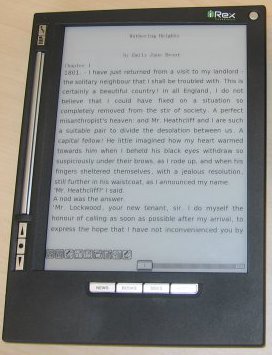 In 2006 I borrowed Orangemaster’s camera, hopped on the train to Eindhoven, and visited a start-up at Philips’ famous High Tech Campus to look at its single, yet to be released product, the Iliad e-reader. Today I learnt through newspaper FD that the former start-up
In 2006 I borrowed Orangemaster’s camera, hopped on the train to Eindhoven, and visited a start-up at Philips’ famous High Tech Campus to look at its single, yet to be released product, the Iliad e-reader. Today I learnt through newspaper FD that the former start-up 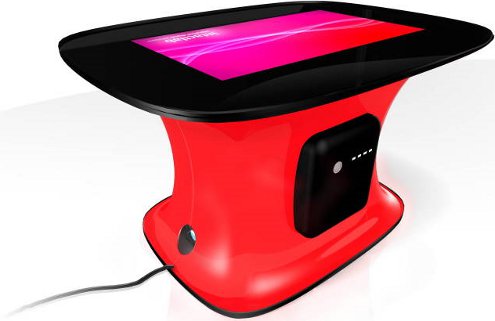
 We could hardly contain ourselves either, but then we found out
We could hardly contain ourselves either, but then we found out 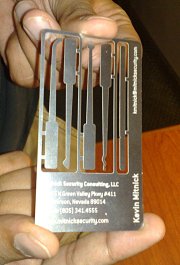 The New York Times has an
The New York Times has an 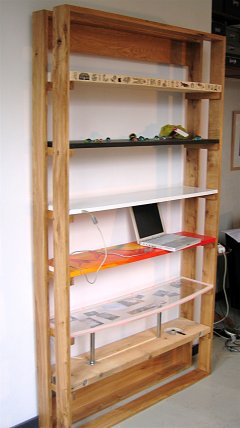
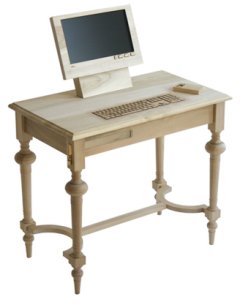
 The
The